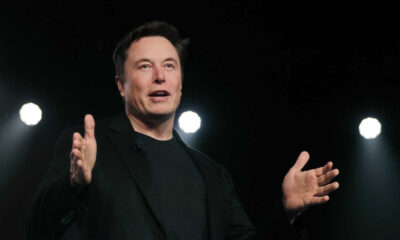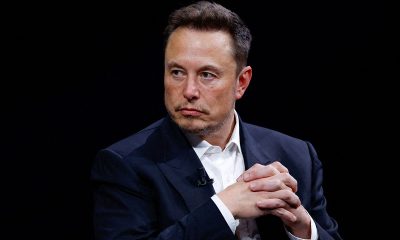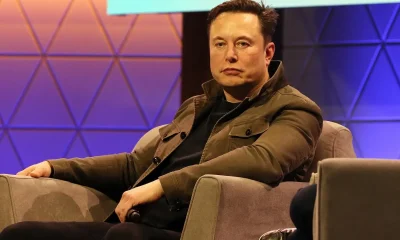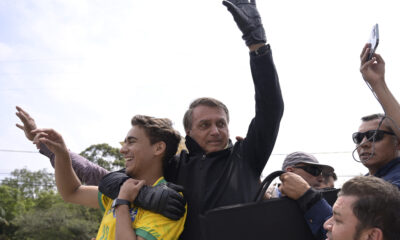International
Twitter users vote to oust Elon Musk as CEO
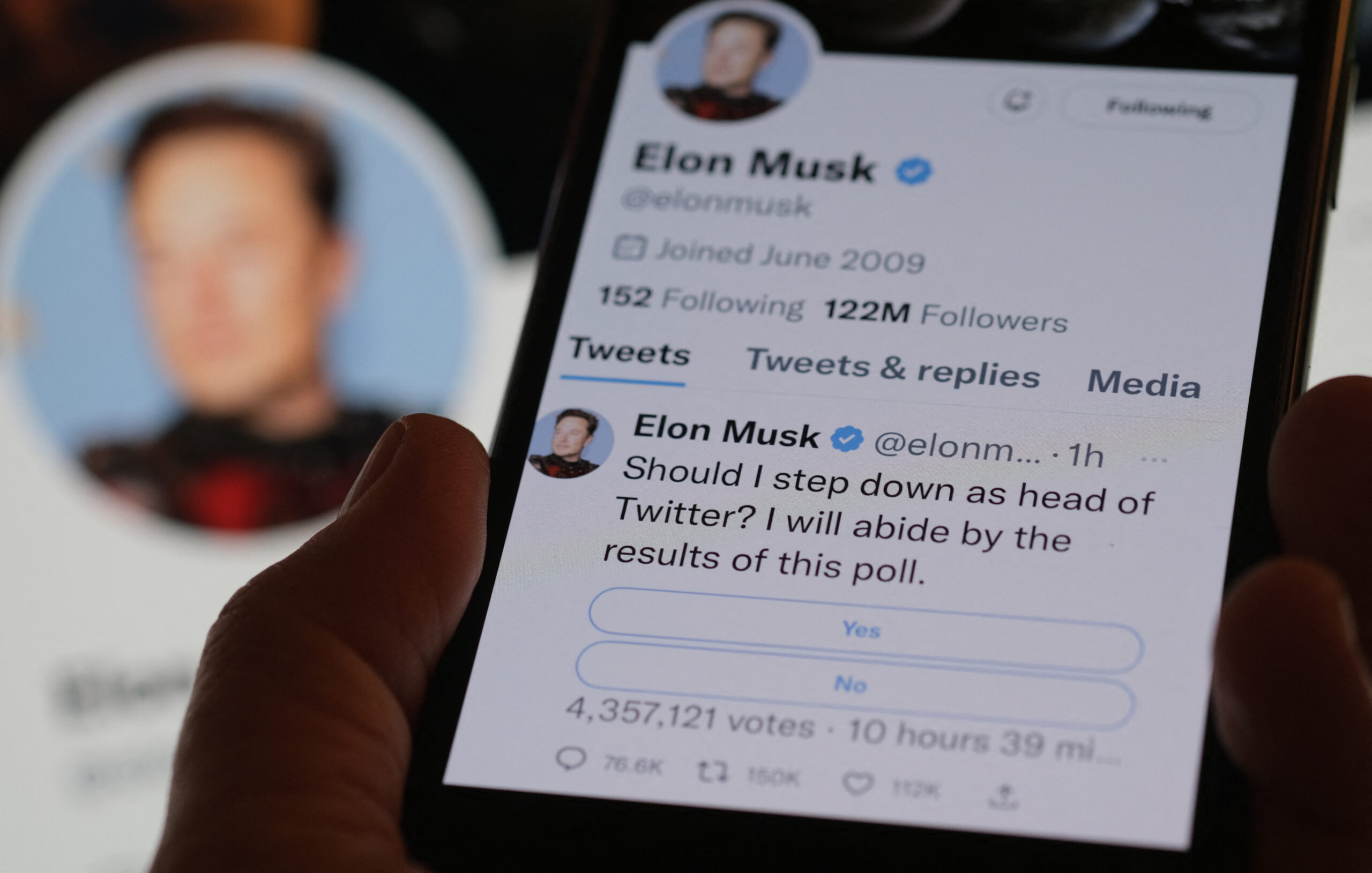
| By AFP |
Twitter users voted on Monday to oust owner Elon Musk as chief executive in a highly unscientific poll he organized and promised to honor, just weeks after he took charge of the social media giant.
A total of 57.5 percent of more than 17 million accounts voted for him to step down. Musk, who also runs car maker Tesla and rocket firm SpaceX, has not yet reacted publicly to the results.
“The question is not finding a CEO, the question is finding a CEO who can keep Twitter alive,” the South African-born billionaire tweeted before the vote closed.
In a response to another tweet, he added: “No one wants the job who can actually keep Twitter alive. There is no successor.”
Musk has fully owned Twitter since October 27 and has repeatedly courted controversy as CEO, sacking half of its staff, readmitting far-right figures to the platform, suspending journalists and trying to charge for previously free services.
Analysts have also pointed out that the stock price of Tesla has slumped by one-third since Musk’s Twitter takeover. The share price briefly rallied by 3.3 percent on Monday before fading.
“It’s hard to ignore the numbers since [the Twitter] deal closed,” tweeted investment expert Gary Black, saying he reckoned Tesla’s board was putting pressure on Musk to quit his Twitter role.
In discussions with users after posting his latest poll, Musk renewed his warnings that the platform could be heading for bankruptcy.
‘Won’t happen again’
Resorting to Twitter’s polling feature has been a favorite strategy of Musk’s to push through policy decisions, including the reinstatement of the account of former president Donald Trump.
Paris-based Reporters Without Borders, which defends press freedom around the world, said the polls were a “crude and cynical” ploy.
“These methods appear to be democratic procedures, but in reality they are… the opposite of democracy,” said the group’s head, Christophe Deloire.
Unpredictable entrepreneur Musk posted his latest poll shortly after trying to extricate himself from yet another controversy.
On Sunday, Twitter users were told they would no longer be able to promote content from other social media sites.
But Musk seemed to reverse course a few hours later, writing that the policy would be limited to “suspending accounts only when that account’s *primary* purpose is promotion of competitors.”
“Going forward, there will be a vote for major policy changes. My apologies. Won’t happen again,” he tweeted.
The attempted ban had prompted howls of disapproval and even bemused Twitter cofounder Jack Dorsey, who had backed Musk’s takeover.
Dorsey questioned the new policy with a one-word tweet: “Why?”
‘Perfect storm’
Musk has generated a series of controversies in his short reign, one which analyst Dan Ives from Wedbush described as a “perfect storm.”
He noted that “advertisers have run for the hills and left Twitter squarely in the red ink potentially on track to lose roughly $4 billion per year.”
Shortly after taking over the platform, Musk announced it would charge $8 per month to verify account holders’ identities, but had to suspend the “Twitter Blue” plan after an embarrassing rash of fake accounts. It has since been relaunched.
On November 4, with Musk saying the company was losing $4 million a day, Twitter laid off half of its 7,500-strong staff.
Musk also reinstated Trump’s account — though the former US president indicated he had no interest in the platform — and said Twitter would no longer work to combat Covid-19 disinformation.
In recent days, he suspended the accounts of several journalists after complaining some had published details about the movements of his private jet, which he claimed could endanger his family.
Employees of CNN, The New York Times and The Washington Post were among those affected in a move that drew sharp criticism, including from the European Union and the United Nations.
Washington Post executive editor Sally Buzbee said the suspension of journalist Taylor Lorenz’s account “further undermines Elon Musk’s claim that he intends to run Twitter as a platform dedicated to free speech.”
Some of the suspended accounts have since been reactivated.
On Monday, the head of the European Parliament, speaker Roberta Metsola, sent a letter to Musk inviting him to testify before the legislature, her spokesman said.
The parliament has no power to compel Musk to turn up, and his response was not immediately known.
International
U.S. Senate Rejects Budget, Bringing Government Closer to Shutdown Amid DHS Dispute

The U.S. Senate voted on Thursday against a budget proposal in a move aimed at pressuring changes at the Department of Homeland Security (DHS), following the killing of two civilians during a deployment of immigration agents in Minneapolis.
All Senate Democrats and seven Republican lawmakers voted against the bill, which requires 60 votes to advance, pushing the country closer to a partial government shutdown that would cut funding for several agencies, including the Pentagon and the Department of Health.
The rejection came as Senate leaders and the White House continue negotiations on a separate funding package for DHS that would allow reforms to the agency. Proposed measures include banning Immigration and Customs Enforcement (ICE) agents from wearing face coverings and requiring them to use body-worn cameras during operations.
The vote took place just hours after President Donald Trump said he was “close” to reaching an agreement with Democrats and did not believe the federal government would face another shutdown, following last year’s record stoppage.
“I don’t think the Democrats want a shutdown either, so we’ll work in a bipartisan way to avoid it. Hopefully, there will be no government shutdown. We’re working on that right now,” Trump said during a Cabinet meeting at the White House.
International
Trump Says Putin Agreed to One-Week Halt in Attacks on Ukraine Amid Extreme Cold

U.S. President Donald Trump said on Thursday that he secured a commitment from Russian President Vladimir Putinto halt attacks against Ukraine for one week, citing extreme weather conditions affecting the region.
“Because of the extreme cold (…) I personally asked Putin not to attack Kyiv or other cities and towns for a week. And he agreed. He was very pleasant,” Trump said during a Cabinet meeting broadcast by the White House.
Trump acknowledged that several advisers had questioned the decision to make the call.
“A lot of people told me not to waste the call because they wouldn’t agree. And he accepted. And we’re very happy they did, because they don’t need missiles hitting their towns and cities,” the president said.
According to Trump, Ukrainian authorities reacted with surprise to the announcement but welcomed the possibility of a temporary ceasefire.
“It’s extraordinarily cold, record cold (…) They say they’ve never experienced cold like this,” he added.
Ukrainian President Volodymyr Zelensky later commented on the announcement, expressing hope that the agreement would be honored.
International
Storm Kristin Kills Five in Portugal, Leaves Nearly 500,000 Without Power

Storm Kristin, which battered Portugal with heavy rain and strong winds early Wednesday, has left at least five people dead, while nearly half a million residents remained without electricity as of Thursday, according to updated figures from authorities.
The revised death toll was confirmed to AFP by a spokesperson for the National Emergency and Civil Protection Authority (ANPEC). On Wednesday, the agency had reported four fatalities.
Meanwhile, E-Redes, the country’s electricity distribution network operator, said that around 450,000 customers were still without power, particularly in central Portugal.
Emergency services responded to approximately 1,500 incidents between midnight and 8:00 a.m. local time on Wednesday, as the storm caused widespread disruptions.
The Portuguese government described Kristin as an “extreme weather event” that inflicted significant damage across several regions of the country. At the height of the storm, as many as 850,000 households and institutions lost electricity during the early hours of Wednesday.
Several municipalities ordered the closure of schools, many of which remained shut on Thursday due to ongoing adverse conditions.
Ricardo Costa, regional deputy commander of the Leiria Fire Brigade, said residents continue to seek assistance as rainfall persists.
“Even though the rain is not extremely intense, it is causing extensive damage to homes,” he noted.
In Figueira da Foz, a coastal city in central Portugal, strong winds toppled a giant Ferris wheel, underscoring the severity of the storm.
-

 International4 days ago
International4 days agoU.S. Senate Rejects Budget, Bringing Government Closer to Shutdown Amid DHS Dispute
-

 International5 days ago
International5 days agoFootball Fan Killed in Clashes After Colombian League Match
-

 Central America5 days ago
Central America5 days agoGuatemala President Says Starlink Terminal Found Inside Prison
-

 International5 days ago
International5 days agoRubio Says U.S. Could Participate in Follow-Up Russia-Ukraine Talks
-

 International5 days ago
International5 days agoMissing Spanish Sailor Rescued After 11 Days Adrift in Mediterranean
-

 Central America3 days ago
Central America3 days agoPanama Supreme Court Strikes Down Panama Ports Concession as Unconstitutional
-

 International4 days ago
International4 days agoStorm Kristin Kills Five in Portugal, Leaves Nearly 500,000 Without Power
-

 Central America3 days ago
Central America3 days agoU.S. and Guatemala Sign Trade Deal Granting Zero Tariffs to Most Exports
-

 International4 days ago
International4 days agoMan Arrested After Vehicle Crashes Into Jewish Institution in Brooklyn
-

 International4 days ago
International4 days agoTrump Says Putin Agreed to One-Week Halt in Attacks on Ukraine Amid Extreme Cold
-

 Central America10 hours ago
Central America10 hours agoCosta Rica Goes to the Polls as Voters Choose Continuity or Change





























